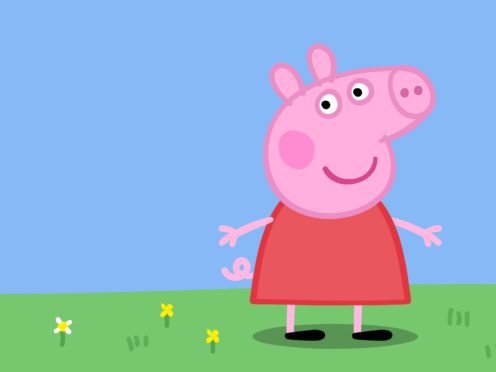Children’s television will receive a £60 million boost to find “the next big thing”, Culture Secretary Jeremy Wright has announced.
A new competition aims to find the next Peppa Pig, Grange Hill and Byker Grove and reverse the growing trend of airing repeats, he said.
The Contestable Fund, which was launched as a pilot scheme in December 2017 by the Department for Digital, Culture, Media & Sport (DCMS), aims to halt a decline in children’s content produced in the UK.
The fund will give £57 million to a Young Audiences Content Fund, providing resources for new programming that represents UK children and teenagers today.
The BBC criticised the scheme, which also includes a £3 million Audio Content Fund intended to encourage innovation in the commercial radio sector.
A BBC spokesman said: “We’re in favour of a wide variety of children’s programming being made in the UK.
“However we worry that this scheme will use licence fee payers’ money ultimately to subsidise big global media companies such as Netflix and Amazon, without addressing issues parents care about like online safety.
“Commercial radio has never been healthier and is set to benefit from further deregulation. It’s not clear that the case for public subsidy, rather than market solutions, has been made – or indeed properly debated.
“There is little evidence schemes such as this are successful elsewhere and whatever happens, money should never be taken from the BBC’s budget to fund the scheme on an ongoing basis.”
Ed Vaizey, a former culture minister, echoed the BBC’s criticism.
He wrote in the Evening Standard: “This kind of fund has not been successful elsewhere, and I have severe doubts that this £60 million will end up being money well spent.
“Ironically, the money could even end up providing subsidies to Netflix and Amazon, who certainly don’t need it.”
The DCMS said that production of children’s programmes has declined over the past decade, with public service broadcasters spending roughly 40% less than they did in 2006.
That meant a significant amount of children’s content is being repeated, with 98% of programmes on children’s channels in 2016 being re-runs, it said.
Mr Wright also announced that the fund would support programming in indigenous UK languages such as Welsh and Gaelic.
Margot James, digital and creative industries minister, said: “Young people in the UK deserve high quality content that entertains, informs and reflects their experiences growing up across the country today.
“The UK broadcasting and production sectors are world renowned, and a success story to be proud of. This innovative project is an instrumental part of our support for the UK’s vibrant media sector and will help it continue to go from strength to strength.”
Ben Roberts, director of the Lottery Film Fund at the BFI, will administer the Young Audiences Content Fund.
He said: “We’re excited to be working with Government to deliver the new Young Audiences Content Fund to help support UK companies to create exciting and distinctive new programmes for young people.
“It goes hand-in-hand with the BFI’s own mission to connect audiences with the widest possible range of content.
“We look forward to making the most of this new opportunity to back talent to create bold and original programming and expand the choices available for young people.”
Will Jackson, managing director of AudioUK, representing audio production companies, said: “We are delighted that the Government accepted our case for an audio element to this fund.
“This will create many exciting new partnerships between commercial radio and audio producers, and increase the number of diverse new voices both on and off-air.
“The many production companies based around the UK will be keen to take this new opportunity to make high-quality public service radio content for a range of stations.”
